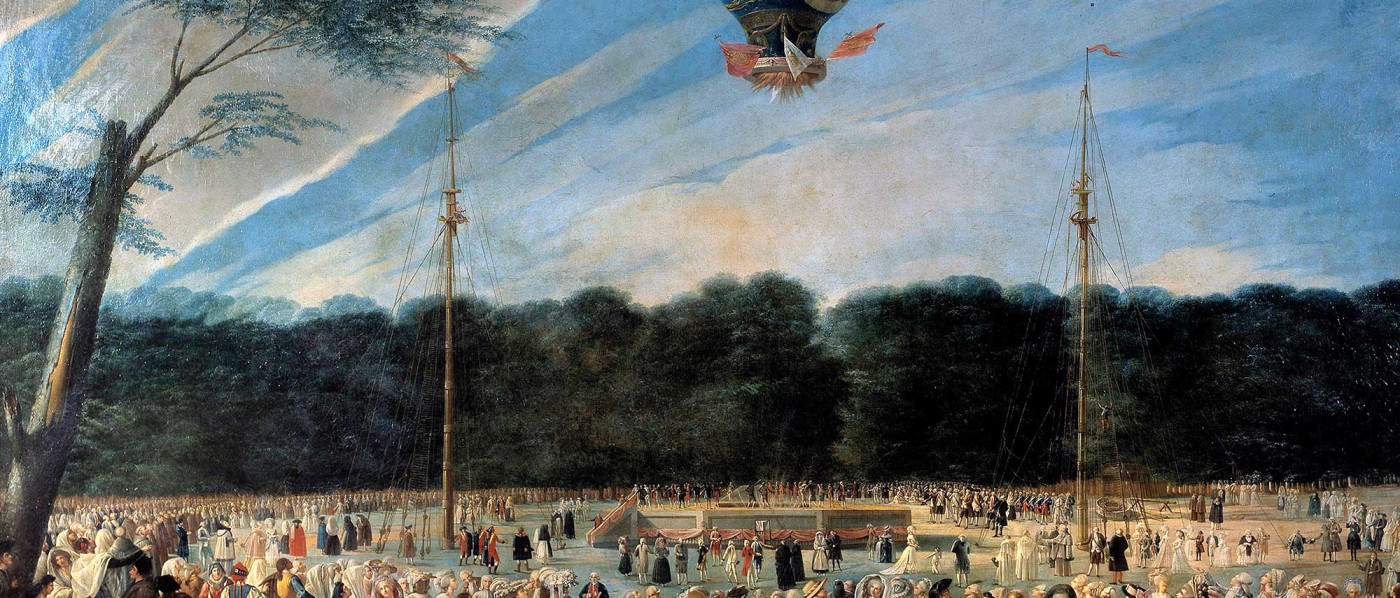Culture and Knowledge as Drivers of Economic Progress
The Industrial Revolution of the 18th century marked the beginning of Western Europe’s strong economic growth, however technological progress alone was not enough: the Age of Enlightenment had laid an important foundation for its onset, says Joel Mokyr, Professor at Northwestern University. In his lecture for the NES Public Lecture series, Joel Mokyr spoke about how the transformation of Europeans’ culture and skills resulted in technological and economic development. Econs.online publishes excerpts from this lecture.
– In the early 1000s AD, Europe was an ignorant, impoverished, violent backwater in comparison to the Eastern civilisations but after the Industrial Revolution of the 18th century, the situation changed dramatically: Europe’s economy experienced strong growth. Its source can be explained in one word, ‘knowledge’, however, in order to understand why knowledge turned out to play such a significant role in the growth of Europeans’ welfare, one should also take into account their culture and skills.
The effectiveness of knowledge depends on several things:
- the density of knowledge – what proportion of people possess a relevant piece of knowledge;
- accessibility – how costly it is for a person to acquire knowledge;
- tightness – to what extent people know it and believe in it.
In the three centuries before the Industrial Revolution, these factors affecting knowledge growth changed, and during those centuries, Europeans developed both attitudes and aptitudes that later gave them a global advantage.
‘The sacred cows should be butchered’
– Speaking about culture and attitudes, I highlight three dimensions that I find the most interesting.
The first one is what I call scepticism, which became widespread in the 15th century when Europe rediscovered the learning of Ancient Greece and Rome. They had rediscovered there was a lot of wisdom and a lot of learning there, but soon started to realise that there was a lot of error as well. By the beginning of the 17th century, Copernicus, Galileo, Descartes, and Newton had, in fact, created a new science, dismissing the classical ‘canon’ at a time with contempt. In the middle of the 16th century, French philosopher Pierre de la Ramee had already written his dissertation on the errors of Aristotle, and by the beginning of the 17th century, Francis Bacon daringly wrote, ‘[the Greek writers of science] certainly do have a characteristic of the child: the readiness to talk with the inability to produce anything.’
I would argue that if you’re going to have the progress of knowledge, you need scepticism, ‘sacred cows’ should be butchered, and all knowledge, both new and old, should be contestable.
However, this approach met strong opposition from the traditionalists and resulted in a ‘battle’ between them and the moderns. By the 17th century, the moderns won in Europe, unlike in other regions: if you take a look at China, at the Muslim world or India of that time, you will see that all of them were traditionalist, and as I call it, committed to intellectual ancestor worship, which hindered innovations.
There are several possible explanations of European scepticism: one of them may be that Europeans lived in small nuclear families rather than larger clans. Another possible reason why Europeans were more sceptical is the polycentric nature of European politics, allowing ‘heretics’ (those who supported non-traditional scientific ideas) to move between the countries avoiding prosecution.
The role of competition
– Another dimension is openness, which allowed Europeans to learn from other cultures and civilisations and to adopt their ideas during the process called the Columbian exchange. In the 15th century, Europeans started moving around the world, they learnt how to make Indian cotton, Chinese silk and porcelain, and how to use Arabian windmills, paper, and decimal numbers. They readily studied medical books by Ibn Sina (Avicenna) and Razi (Rhazes), despite them being Muslim, as well as philosophical works by Ibn Rushd (Averroes) and Ibn al-Haytham (Alhazen) on astronomy and optics. In 1613, Leiden University established one of Europe’s very first chairs of Arabic language and culture. Its first occupant Thomas Erpenius argued in his inaugural lecture that ‘Arab culture has a world of wisdom to teach.’
This openness of Europeans can be partly attributed to the fragmentation of Europe and competition. This fragmentation manifested itself in many ways: in the dynastic rule, states, cities, universities, and religions. It meant that Europeans used every opportunity to help their countries gain competitive advantages and tried to get all the knowledge that could help them do that and outrank their neighbours.
The market for ideas
– The third dimension, driving Europe’s prosperity is neophilia, enthusiasm for everything new. Europeans had a taste for the new, and they set up institutions that rewarded intellectual innovators who came up with new ideas in arts and science. Isaac Newton became some kind of a national hero in his time, and around a hundred thousand people showed up at his funeral in 1727. Innovators became celebrities and enjoyed the patronage of rulers like the one Florentine Court granted Galileo Galilei. However, to obtain patronage, innovators had to compete, which in the end, created a well-functioning market for ideas.
To obtain jobs at courts or universities, scholars had to build a reliable reputation, including among peers, which required them to be innovators. As a result, a lot of radical new ideas were proposed between 1500 and 1750. However, not all of these ideas were good, and many were mistaken (for instance, things like astrology and numerology were popular at the time).
What explains this European neophilia? In every society, there are non-conformists, people, who think outside the box. Being innovative means risking to be prosecuted for one’s opinions, blamed for heresy, apostasy, blasphemy, and sorcery, and punished accordingly. However, to be effective in the whole European continent rather than in one country, reactionary policies should be coordinated. It was not always possible, which was to the benefit of innovators. This ended up in intellectual tolerance because prosecuting non-conformists became meaningless rather than because rulers became more enlightened and tolerant.
The foundation of progress
– Not all new ideas can be implemented: timely realisation is often hindered by a lack of materials, technologies, and workmanship, i.e. what I call aptitude. If you compare Europe to, for example, China, you will see that in the 14th century, the latter was technologically superior. However, as voyages and trade increased, European artisans were quickly improving, particularly in Britain. In the early 18th century, Britain produced steam engines, telescopes, precision tools, and had a well-functioning clock-making industry.
Superior aptitudes (namely, technologies and materials) help explain the timing and the location of the Industrial Revolution. I think that the difference between Leonardo da Vinci, whose numerous inventions were not realised, and James Watt, the inventor of the steam engine, is that Leonardo did not have John Wilkinson (an engineer and a pioneer of industrial iron production).
Formal knowledge compliments industrial arts, and many scientists of the 18th century had no qualms about getting dirt under their fingernails. The simultaneous evolution of Europe’s culture and knowledge resulted in the Enlightenment, which laid the foundation for the Industrial Revolution and modern economic growth in the continent. The spirit of Enlightenment did not just believe in progress, but suggested how it was to be achieved.
Everything I have mentioned is about the past. But what about the future? Can progress continue? Since we are still capable of developing new technologies, the answer is undoubtedly yes. However, there are no guarantees. Economic progress depends on the right institutional and political environment. It requires economic liberty, the rule of law, civil society, low corruption, tolerance, human rights, and free press. The great danger for humanity is unbalanced growth, i.e. if the continued expansion of our knowledge (in biology, chemistry, physics, nanotechnology, etc.) is not accompanied by institutional progress.

.png)





